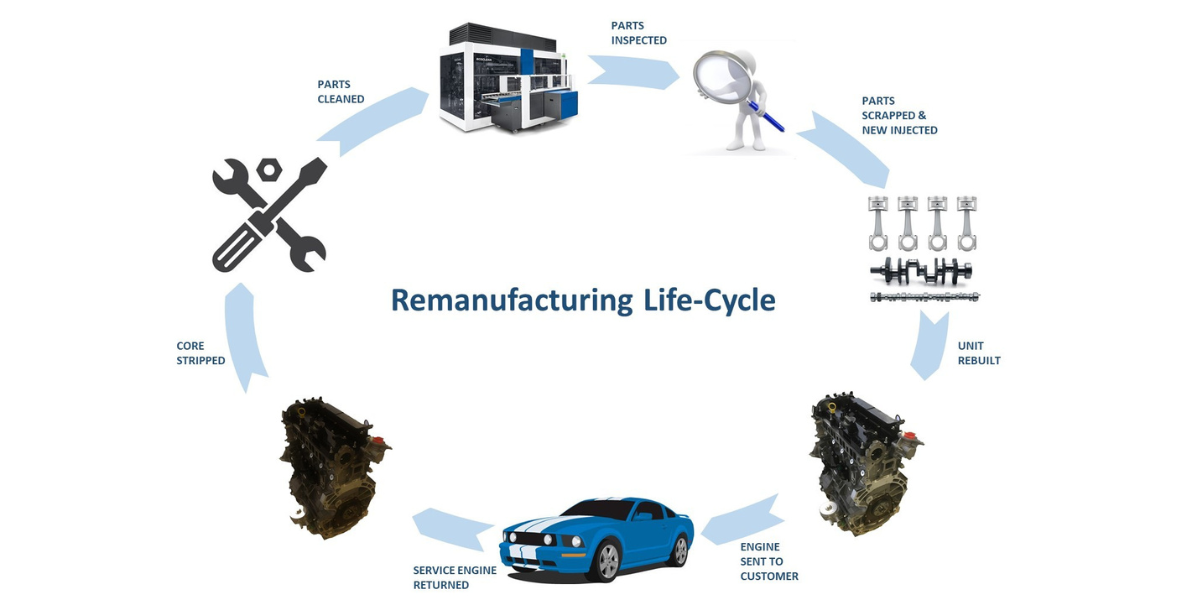
Getting companies involved in reman is vital for the future of the industry. Tanya Tsui, researcher in climate design & sustainability at TU Delft, explains how the new Remanpath project will help.
Remanpath aims to give courses that introduce and promote remanufacturing to companies. Currently, European remanufacturing activity is only around 2% of equivalent manufacturing activity - even though this number could be significantly increased in the future. To make that increase possible, the competence of companies needs to be developed, particularly with small‐ to medium‐sized manufacturing firms. The Remanpath project therefore aims to develop, pilot and hold educational courses for employees of those sorts of companies. The aim of the course is for people to identify their firm’s own competence development paths, and devise innovative business models, in order to start remanufacturing products into something new and valuable.
The Remanpath course is a half-day event which includes lectures, company case presentations and exercises, allowing participants to work together and share ideas. The target participants are manufacturing firms who do not yet remanufacture their products, industrial sector bodies and consultants. The learning material is built not only to be used individually but also as the basis for collaborative activities, and allows participants to imagine solutions their company could use to apply remanufacturing to their business.
Pilot courses have been held in five countries: Finland, Germany, UK, Netherlands and France. The courses were well received, and participants came from a diverse set of industries – from automotive to construction and product design. Currently, the learning materials are being refined in the light of comments from the participants and key findings at the pilot courses. More courses will be held later in 2019 using the improved learning material.
What we learned
The most important insight that was gained from the Remanpath workshop is that most participants were interested in knowledge related to business and management for remanufacturing. From questionnaires, it was discovered that the majority of participants were interested in learning more about the business of remanufacturing - such as business models, marketing, pricing, managing competition - and the logistics and management of remanufacturing, such as reverse logistics and information management.
During the pilot courses, participants commented that, while they could have skills to solve the technical problems of remanufacturing, they lacked the business and management skills needed to start remanufacturing activity in their own company. During a pilot course, a manufacturing SME found out that remanufacturing is technically possible for their company, but is much more challenging in terms of business and management. Although the employees of this company have the skill to remanufacture cores to an as-new quality, they do not have knowledge or skills in reverse logistics and information management – two important skills for remanufacturing.
Unknown subject
Participants of the pilot courses also found that the design of their product was a barrier to remanufacturing. Components of products are often bound together by adhesives, which makes them difficult to disassemble. The different versions of products often use different dimensions, making them difficult to upgrade and modify during the remanufacturing process. Incorporating the objectives of remanufacturing directly in the design process would greatly increase the ease of remanufacturing products at their end of life.
It was also surprising to find that remanufacturing is a mostly unknown subject in many industries, despite its economic and environmental benefits. In the Delft pilot course in the Netherlands, participants were mainly from the façade manufacturing industry. Most participants of the course were unaware of the term ‘remanufacturing’ before they joined the course, even though they were interested in how their companies could position themselves within the circular economy. Even though façade products are very suitable for remanufacturing (long lifetimes, high value, produced in high quantities), the participants of the pilot course were unaware of the option of remanufacturing their own products. It seems that the idea of remanufacturing is stuck in the automotive and aerospace industries, and isn’t spreading to other industries as well.
Finally, what has pleasantly surprised and impressed the team of academic researchers behind the Remanpath project is the enthusiasm of our corporate participants. They were open, enthusiastic and eager to share their ideas. They appreciated working with academics, and creating more opportunities for exchange. As researchers working in an academic environment, it is inspiring to see that companies are interested and willing to collaborate with academia on topics of sustainability, circular economy and remanufacturing.


